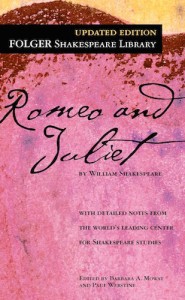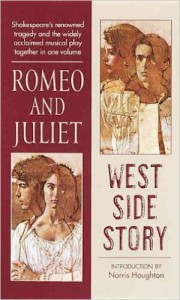What If? Writing Prompts: Nature III
Here’s another set of “What If?” Writing Prompts for you! This week’s post features another batch of prompts in the theme of nature and environmentalism. See what environmental stories you can create around these ideas! Enjoy!
 What if… there were only one type of energy source to power everything in the world?
What if… there were only one type of energy source to power everything in the world?
What if… all humans lived in communion with animals?
What if… environmental conservation were always a political priority?
What if… there were no major urban areas in the world?
What if… all manmade modes of transportation suddenly disappeared?
Have fun writing more stories about nature!
If you have any “What If?” writing prompt suggestions (for any theme), please feel free to share them in the comments below. Ideas I like may be featured in future “What If?” posts, with full credit and a link to your blog (if you have one)! Also, if you’ve written a piece based on an idea you’ve found here, be sure to link back to the respective “What If?” post. I would love to see what you’ve done with the prompt! Thank you!
Word of the Week: Harbinger
Word: harbinger
Pronunciation: HAR-bən-jər
Part of Speech: noun
Definition: a person or thing that announces or signals the approach of another
Source: Oxford Dictionaries
Yet another word pulled from the list of 100 most beautiful words in English, “harbinger” is a word I’ve read quite a few times in various forms of fiction. I tend to see it most commonly in fantasy fiction, where it often refers to a literal messenger warning of the approach of a powerful figure. Whether the arrival of said figure is good or bad news varies depending on the story, but either way, the presence of a harbinger is usually a sign of imminent serious business!
A “harbinger” is someone or something that signals or announces the approach of someone or something else. The word can be traced back through French from the noun herbergere to the verb herbergier, which means “to provide lodging for”. This verb stems from the noun herberge “lodging”, which comes from the Old Saxon noun heriberga, meaning “shelter for an army”.
As you can probably deduce from its etymology, there’s a history behind the word “harbinger”: it used to refer to a person who provided lodging and later to a person who ventured ahead to find lodgings for an approaching army. “Harbinger” is related to the word “harbor” in origin, and a sub-definition of the word is “a forerunner of something”. A “harbinger” doesn’t have to be concrete, but the ominous beings in fiction who seem to foretell the coming of such powerful figures as Death, Justice, and Doom have always been my favorite examples. If you like to warn your characters (and your audience) of major events about to unfold in your stories, you may have room for a “harbinger” or two in your fiction! Good luck!
What are your thoughts on this word? Any suggestions for future “Word of the Week” featured words?
First Taste
It was the most delicious thing I had ever eaten.
You never forget your first taste, my father had told me. Oh, how right he was. I had tried to resist my instinct, but I couldn’t any longer.
My mouth watered long after the last bite. The monthly helpings of rabbit and fox I had known until now were nothing compared to this. Such succulent meat; not too bony and just the right amount of blood and fat to make it juicy without being heavy. And the crispy skin? Sublime! What a great idea to roast it first! I was lucky not to overcook it. Fires made with the clumsy paws of a wolf have a way of going awry.
As I sucked the last bits of meat off the bones, I heard rustling from afar. Following the call of the moon, I slunk toward the dim light in the distance, careful to stay hidden as the glowing torches came into view. The next sight to meet my eyes made me grin.
Three more foolish humans wandering through the woods, no doubt searching for the first. How predictable.
I licked my lips as I crouched in the shadows, more than ready for a second taste. Tonight I was going to eat very well.
Off The Bookshelf: Romeo & Juliet/West Side Story
I know it’s been a while since I’ve shared a book on my Off The Bookshelf segment, so this week, I’m going to discuss one of my favorites. I’ve talked about this famous story in depth a few times before, notably to discuss five points that are often missed and the reasons why it’s a greater story than many people think. Once again, I’d like to revisit this classic tale of forbidden love, this time in a double dose. I hope you’ll enjoy this review of one of my favorite books off my shelf: Romeo & Juliet/West Side Story.
Summary
First published in 1965, Romeo & Juliet/West Side Story comprises two stories in one: the stage play Romeo & Juliet by William Shakespeare; and the 1957 Broadway musical West Side Story by Arthur Laurents. The book also includes explanatory notes for unfamiliar expressions in Shakespeare’s play and a foreword by renowned theater director Norris Houghton.
Romeo & Juliet tells the story of two teenagers in Renaissance Verona who fall in love despite the age-old feud between their families, but who are driven to an untimely end by fate and the violent circumstances surrounding them. Inspired by Shakespeare’s play, West Side Story tells the same tragic tale of a doomed romance between young lovers, but updates the setting to modern-day New York and the protagonists to a white American boy and a Puerto-Rican girl torn apart by the racism-fueled rivalry between the street gangs with which they’re associated. As much for Romeo and Juliet as for Tony and Maria, love blossoms at first sight and against the odds, only to be threatened and destroyed by hatred that brings tragedy not just to the young lovers, but to their war-torn society as a whole.
Review
 I first read this book as a teenager, shortly after watching the 1961 movie West Side Story as homework for singing lessons (I was to sing “Somewhere” at my first presentation). Long familiar with the plot of the original play, I had fallen in love with the story of forbidden romance and was eager to finally read Shakespeare’s timeless classic for myself. Of course, I’ve made my love for the story itself abundantly clear in the past, so this review will focus a little more on the format of this book than on the pieces within it.
I first read this book as a teenager, shortly after watching the 1961 movie West Side Story as homework for singing lessons (I was to sing “Somewhere” at my first presentation). Long familiar with the plot of the original play, I had fallen in love with the story of forbidden romance and was eager to finally read Shakespeare’s timeless classic for myself. Of course, I’ve made my love for the story itself abundantly clear in the past, so this review will focus a little more on the format of this book than on the pieces within it.
What I find most interesting about this particular book is the way the same story is presented over two very different backdrops: one in Renaissance Italy, the other in 1950s New York. By combining both stories into one volume, Romeo & Juliet/West Side Story offers a unique way to visualize the tale of star-crossed young love across time. The similarities and differences between these popular pieces become clearer as the reader is able to quickly swap a scene in one play for its parallel in the other: the feud between the Montagues and the Capulets becomes a turf war between the Jets and the Sharks, the Capulet ball becomes the dance at the gym, the poetic exchange at Juliet’s balcony becomes a duet on Maria’s fire escape. Each story is beautiful in its own right, but I’ve found that to be able to compare and contrast them so easily makes the fundamental plot all the more fascinating.
 Romeo & Juliet was the first Shakespearean play I ever read, so naturally I was yet unfamiliar with Elizabethan English. This is where the notes in the back of the book came in extremely handy. Essential words and terms are referenced to the line with modern English translations and explanations wherever necessary, so the notes were a tremendous help when it came to deciphering the meanings within Shakespeare’s verse. It’s worth noting that they’re still helpful to any new reader who plans to read more of Shakespeare, as several of the expressions used in Romeo & Juliet commonly appear in his other works. Unfortunately, a similar device isn’t available for West Side Story, which relies on its readers’ familiarity with the music to be fully enjoyable, but this is merely a minor drawback to what is otherwise an equally stunning theatrical masterpiece.
Romeo & Juliet was the first Shakespearean play I ever read, so naturally I was yet unfamiliar with Elizabethan English. This is where the notes in the back of the book came in extremely handy. Essential words and terms are referenced to the line with modern English translations and explanations wherever necessary, so the notes were a tremendous help when it came to deciphering the meanings within Shakespeare’s verse. It’s worth noting that they’re still helpful to any new reader who plans to read more of Shakespeare, as several of the expressions used in Romeo & Juliet commonly appear in his other works. Unfortunately, a similar device isn’t available for West Side Story, which relies on its readers’ familiarity with the music to be fully enjoyable, but this is merely a minor drawback to what is otherwise an equally stunning theatrical masterpiece.
Both Romeo & Juliet and West Side Story have had a profound impact on audiences: one for its poetic deconstruction of romantic ideals, the other for its dramatic commentary on the consequences of social intolerance. The presentation of both plays in one volume brings to light the true timelessness of Shakespeare’s classic, proving that the story of love born against hate will be forever relevant as long as people and society continue to be powerfully motivated by both.
Inspiration
Romeo & Juliet is the archetype of forbidden love thwarted by circumstance, so it’s no wonder the story has translated so well into the modern setting of West Side Story. Whether set between feuding families or warring street gangs, this tragic love story reads not only as the epitome of the passion and dangers of young romance, but as a lesson on how hatred kills. Perhaps for its universal themes of love, intolerance, and the cruelty of fate, the plight of the star-crossed lovers is a tale that has fascinated readers for centuries and certainly will for many more to come. It has served as inspiration for much of my romantic fiction, and to this day I indulge in it whenever I feel the need to satisfy my cravings for drama and romance.
For all the above reasons and more, Romeo & Juliet is and likely always will be my favorite story at its core, regardless of the characters, settings, and details that flesh it out. To be able to enjoy my two favorite versions of the story in a single volume is simply the cherry on top of a classic poetic delight.
Word of the Week: Demure
Word: demure
Pronunciation: di-MYUR
Part of Speech: adjective
Definition: reserved, modest, and shy
Source: Oxford Dictionaries
Here’s another word pulled from the list of 100 most beautiful words in English. This one’s a little closer to home, since I could easily use it to describe myself. Anyone who knows me in person can testify to the fact that I’m extremely shy and reserved, so if you’re like me (or know a woman like me), then “demure” is a good word for you to know too!
A “demure” woman is modest and reserved in her behavior. The word arose in late Middle English in the sense “sober” or “serious”, and can be traced back to the Old French adjective meur, meaning “mature”. This adjective stems from the Latin adjective maturus, which means “mature” or “ripe”.
It’s worth noting that “demure” can also be used to describe clothing that lends a modest appearance to its wearer. Despite having the same etymological origin, it shouldn’t be confused with the verb “demur”, which means “raise doubts or objections or show reluctance”. According to Oxford Dictionaries, “demure” refers to the behavior of a woman, though I suppose it’s up to a writer’s discretion whether or not to use it as a gender-neutral adjective. If you draw inspiration from people who are modest and shy, you may have some “demure” characters in your stories!
What are your thoughts on this word? Any suggestions for future “Word of the Week” featured words?



Recent Comments